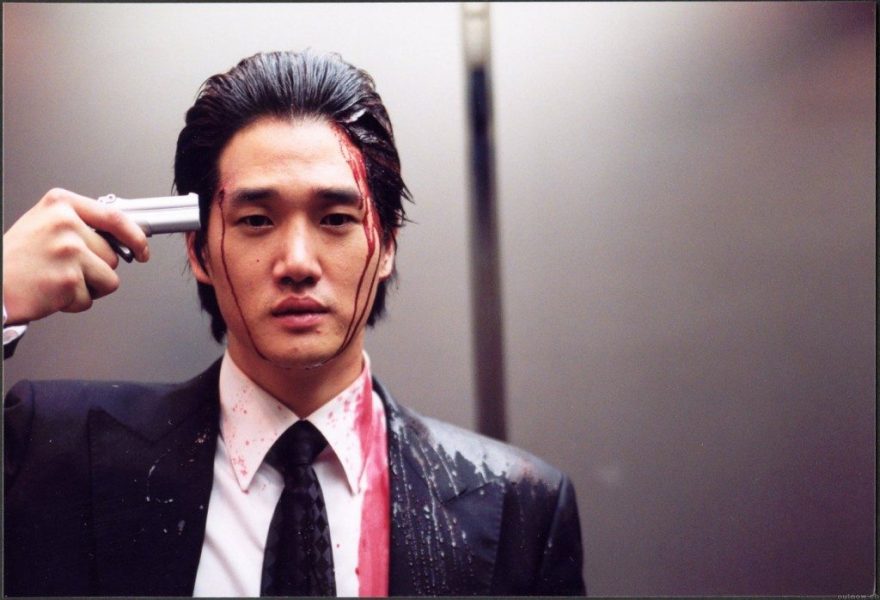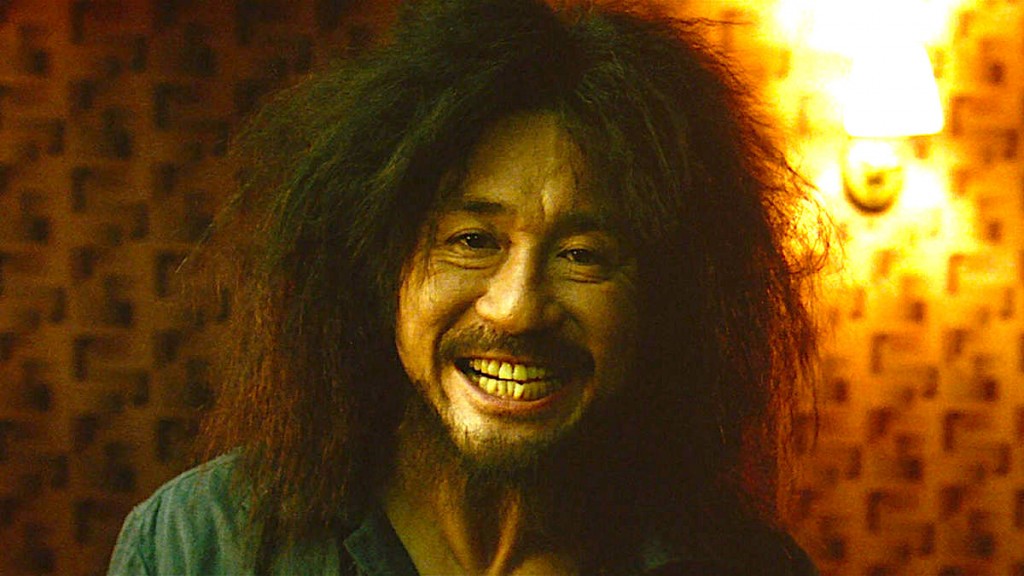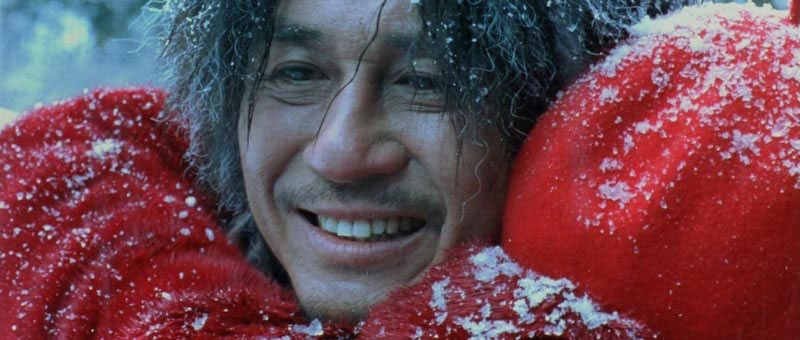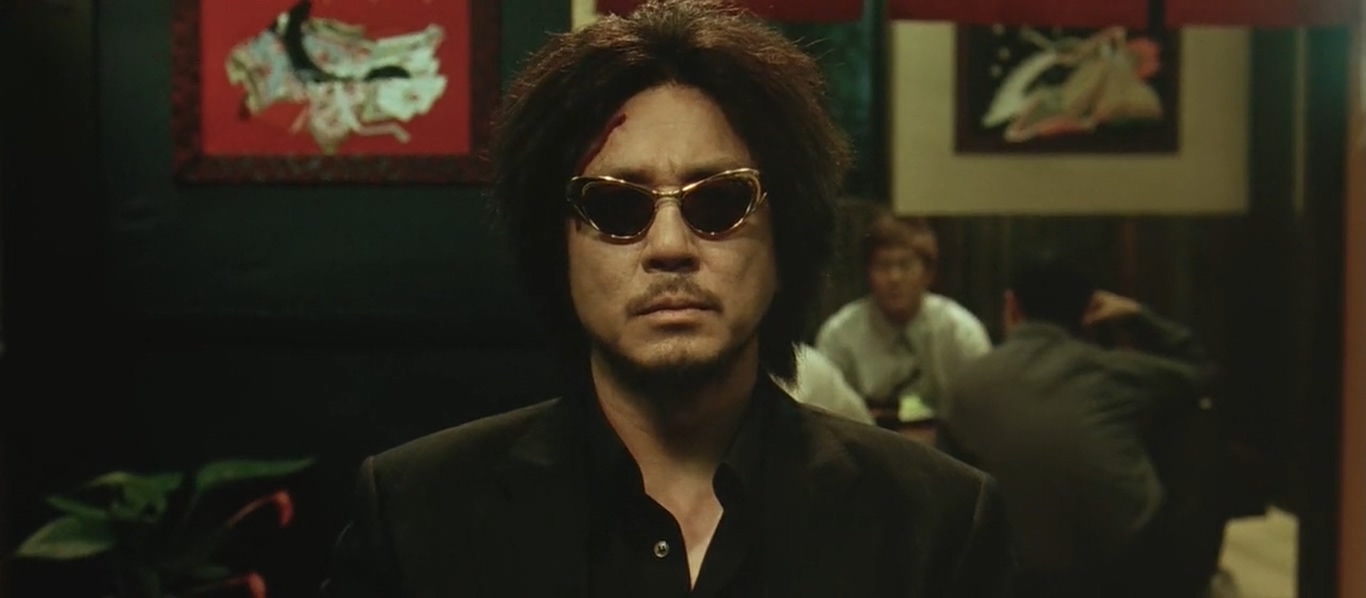Over the last 3 decades, we’ve been fortunate enough to experience “The Korean Wave,” which has resulted in the cultural import of the finest aspects of popular culture from South Korea – cinema, television, music, and technology. Part of the new wave of exciting cinema has been director Park Chan-wook (‘The Handmaiden,’ ‘Lady Vengeance’), who has also helmed the excellent ‘Oldeuboi’ (‘Oldboy‘).
It is the second installment in the highly acclaimed ‘Vengeance Trilogy.’ Released in 2003, this surrealist neo-noir thriller is a whodunnit with several intelligent twists. The plot revolves around the false incrimination of protagonist Dae-su, who is on a quest for revenge. On a crusade to find the identity of his incarcerator, he finds love but keeps running into danger. Its highly ambiguous and cleverly crafted ending has become a part of modern cinematic history and folklore. SPOILERS AHEAD.
Oldboy Plot Synopsis
After another night of drunken revelry, Oh Dae-su is sent to prison. He misses his daughter’s birthday but is bailed out the next day by his friend. From then, he loses consciousness, only to find himself in prison with a trap-door for food and a TV, which tells him that he murdered his wife. Having no recollection of the deed, he is convinced that there is something more sinister at bay. Every day, valium gas is released into his prison room at a stipulated time, after which he relives the same day in a loop.
Consumed by the thought of revenge, he trains himself and swears to get to the bottom of the mystery – who did this to him and why. Fifteen years later, his release is marked by a series of mysterious events, which prompts him to believe that there is something more sinister afoot. Along the way, he meets a young woman, Mi-do (Kang Hye-jung), whom he shares a deeply intimate bond with. Over the course of his journey for vengeance, he discovers that she is, in fact, his daughter.
An old classmate from school, Lee Woo-jin (Yoo Ji-tae), wants Dae-su to commit the same “crime” that he had. He wants Dae-su to have incestual relations with someone he loves and then lose them. Dae-su had witnessed Woo-jin having sex with his sister and then sourced the scandalous gossip to his classmates. The rumor developed that Soo-ah was pregnant, and her brother was the father, following which, Soo-ah kills herself.
Oldboy Ending: What is The Oedipus Complex?
Director Park Chan-wook, in an interview, shed light on one of the central themes in the plot. He also stated that the protagonist is supposed to remind the audience of Oedipus. In Sophocles’ Greek tragedy of ‘Oedipus Rex,’ a young prince seeks to escape the horror of a self-fulfilling prophecy that dictates that he will kill his father and marry his own mother. But after an unforeseen turn of events, it happens anyway. From this tale, Freud developed the Oedipal complex, which loosely theorizes the feelings of desire experienced by a child for an opposite-sex parent.
In ‘Oldboy,’ the theme of shame, experienced by both men, as a result of having incestuous relations drives the narrative. Having sex with women with whom they share a direct genetic link becomes a source of great humiliation in both their lives. For Woo-jin, the reveal of the sacrilegious truth is the moment he has built his life around. After losing his sister, in a way, he has been hollow on the inside. What fuels him is the knowledge that he could inflict the same pain onto Dae-su. Dae-su is anyway portrayed as someone who relies more on brawn than brain.

An added bonus for Woo-jin is his lavishly inherited wealth and the henchmen that he hires to torture Dae-su. Park Chan-wook also deliberately contrasts the prohibition of this desire at the core of the human psyche and naturalizes the ensuing frustration in the form of lustful revenge. Both men cannot have who they love and want without social sanction and humiliation. Woo-jin, in a crescendo of violence and after revealing his motives, kills himself because he knows that his life cannot, ever, replicate this high.
Why Does Dae-su Seek a Hypnotist?
In no uncertain or ambiguous terms, Dae-su seeks to erase the trauma of his past, especially his most recent discovery. He has been tricked and manipulated into having an intimate and sexual relationship with a woman who is actually his long-lost daughter. He feels tired and defeated by the enormity of what he knows and what he cannot undo.

This is represented by a series of powerful images and dialogue. Firstly, Park Chan-wook employs the use of an inverted The Great Wave off Kanagawa by Japanese artist Hokusai. Also known as “The Great Wave,” the painting shows us giant and angry waves in turbulence. These waves rise above even the mighty Mount Fuji in the distance, while three boats meekly stand in front, awaiting the eventuality of their fate.
This is most certainly an allusion to the enormity of what Dae-su has learned, and the ferocious waves represent the insurmountable task at hand. He has to process these feelings, which our protagonist most certainly can’t do on his own, and then teach himself to forget about the ordeal. This is followed by the camera panning to Dae-su walking across Woo-jin’s battered penthouse and staring at his reflection. All this while the hypnotist says, rather tellingly, “One person doesn’t know your secret Oh Dae-su… the one who knows the secret is the monster.”
Who is the Villain? Does Dae-su Manage to Forget His Past?
Oh Dae-su’s imprisonment and the series of mishaps that follow him wherever he goes has made him a monster, incapable of feeling or performing the actions that make you human. The only exception is Mi-do, whose kindness and generosity of heart lowers his guard and helps him heal. Upon learning that she is his daughter, the monster reawakens. He crouches on all his limbs and barks like a dog, cuts off his tongue, and submits to Woo-jin.
This culminates in a fantastic shot that deals with the raw exchange of power. Dae-su completely submits to Woo-jin in exchange for protecting the truth from Mi-do. He feels like she cannot deal with the enormity of the truth: their incest. In this scene, the audience, too, is made to feel the unbearable pain of Dae-su. In his vengeful bloodlust, he thinks that he can erase his emotional pain by channelizing physical violence and actualizing his “masculinity.”
In the very next sentence, the hypnotist pledges to banish those monsters as Dae-su stares at his reflection in the window-pane. Yet, as he is walking away from the scene of the crime, his reflection mournfully continues staring. The last scene pans to Dae-su lying confused in a field of snow, with Mi-do finding her way to him. As they warmly embrace, Dae-su first smiles, following which his face undergoes a series of twisted contortions that shift into almost-hysterical tears.

We can perhaps believe that the pain on his face when embracing his daughter-cum-lover is an act of muscle memory. At the same time, the memories of the pain have indeed been wiped clean. With this ambiguous ending, Park Chan-wook has created an enduring legacy that is a testament to his cinema. We are perennially left to wonder whether Dae-su has managed to forget his past.
Read More: Movies Like Oldboy


You must be logged in to post a comment.